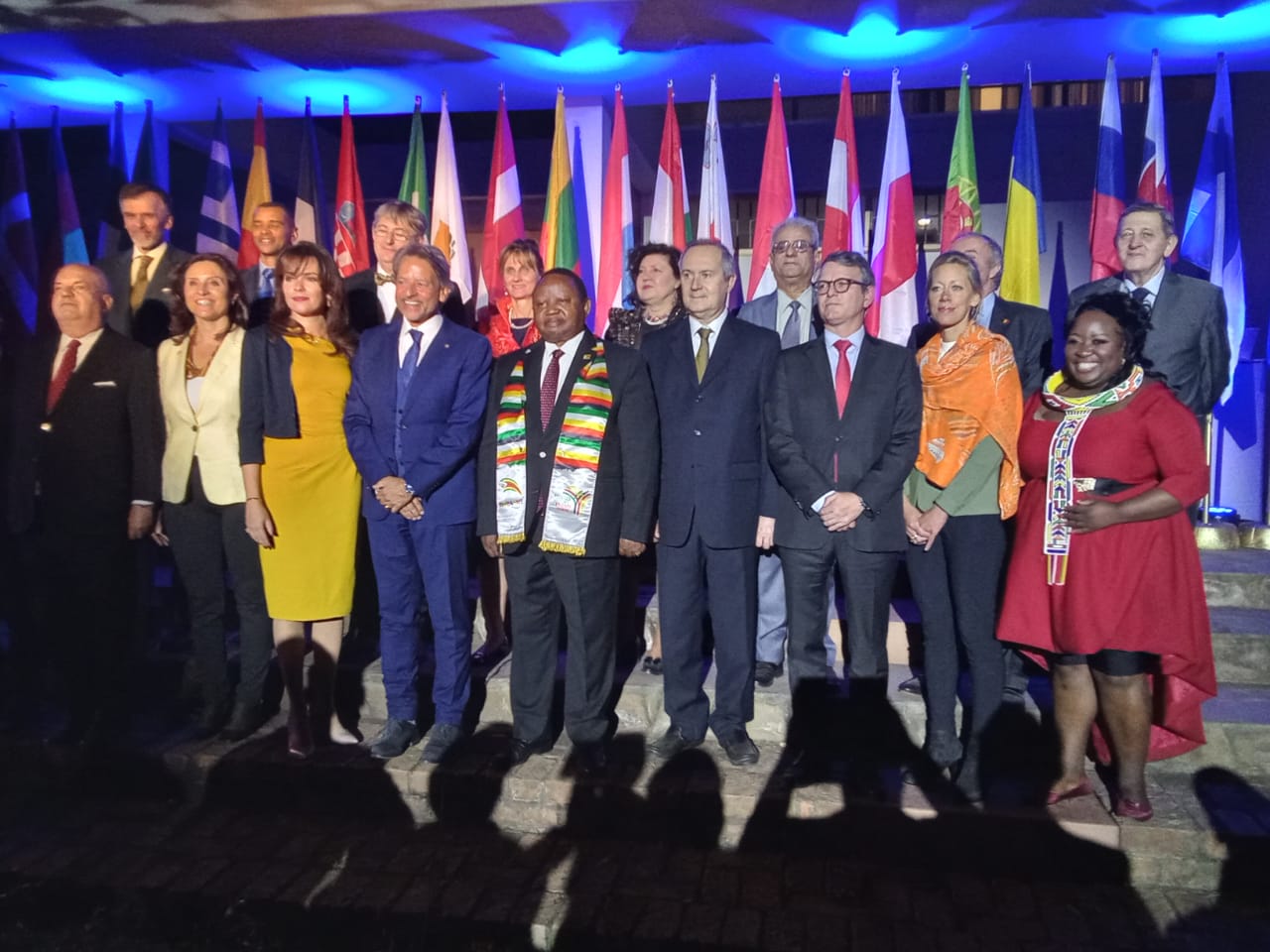|
Getting your Trinity Audio player ready...
|
The relationship between Zimbabwe and the European Union (EU) is solidifying as exemplified by the deepening solidarity and partnerships between the two entities.
Addressing delegates at the belated celebration of the EU Day in Harare yesterday where he was the Guest of Honour, Ambassador Frederick Shava, the Minister of Foreign Affairs and International Trade said Zimbabwe and the EU are working together to address global challenges in pursuit of promoting peace and harmony.
“We are working together to address challenges like terrorism and conflicts, and climate change which threaten our existence. We need to build resilient socio-economic systems to address these challenges. Peace is the environment where all can flourish despite these challenges,” Ambassador Shava said.
The seasoned diplomat said sustainable peace and inclusive development are key to a sustainable future. In that, he emphasised the need for a new positive trajectory towards improving relations between Zimbabwe and the EU.
Ambassador Shava said Zimbabwe is committed to improving lives through reforms across all systems of life. He said the country has made significant strides in implementing reform agendas across political, economic, and legislative sectors and was confident the citizens will come out in their millions to elect their leaders in anticipated peaceful and free elections to be held in August this year.
HE Jobst Von Kirchmann, the EU Ambassador to Zimbabwe, said the gathering was to commemorate the “Europe Day” established on the 9th of May of 1950, when the pronouncement of Schuman Declaration marked the first step of the 73-year-old peace project called the European Union. This happened just a few years after the Second World War, which resulted in over 50 million lives lost, including fathers, brothers and young boys as soldiers, and entire families as civilian victims of the war.
HE von Kirchmann said it required a tremendous emotional effort to bring together leaders around the table and say: “Let’s turn the page and, from now on, let’s focus on what can unite us rather than what divides us”. This required a lot of mutual respect, and trust had to be rebuilt. It was thanks to the wish and will to respect former enemies, trust them, and want them to succeed rather than to destroy them that the project succeeded.
“The EU is a peace project and it is not without reason that we received the peace Nobel Prize in 2012. Unfortunately, in 2022, war returned to Europe with the Russian aggression against Ukraine, threatening the world order based on respect for sovereignty. It reminded us of our past and emphasized the need for even greater unity.
“We are “united in our diversity” and we have been so for the last 73 years. And today, we celebrate our founding values: peace, fundamental rights, freedom, democracy, rule of law, and sovereignty.
“But today, here in Harare, accompanied by all of you, it is also a moment to celebrate EU’s partnership with Zimbabwe,” the EU Ambassaor said.
He hailed the depth and richness of the collaboration between Zimbabwe and the EU with the bloc having made progress in trade and investment, through its support to the private sector, and engagement in development cooperation as Team Europe aligned with the Zimbabwe’s National Development Strategy.
“This has been possible because of our shared values and interests. And tonight “Team Europe” is here in a “European village” to show you our diversity. We want Zimbabwe to succeed in its vision 2030, and I believe that the high-level platform for arrears clearance and debt resolution, as initiated by the government, is a crucial component of this effort. This platform includes on its agenda all current challenging topics: exchange rates, macroeconomic stability, good governance, and land issues,” he said.
The Government of Zimbabwe is proposing to measure success according to international indicators that cover essential governance aspects, such as democratic elections, civil society space, freedom of expression, assembly, and association, as well as the impartiality of the judicial system, to name just a few.
“The measures taken yesterday to stabilise the exchange rate and macro economy, represent another expression of commitment and of ownership of a sovereign country who lives up to the image that “only Zimbabwean know what is best for Zimbabwe”.But the real benefit of this process goes beyond measures taken. It is an inclusive process.
“Not only governments and international organisations are participating. Also the vibrant civil society of this country is part of it, and their voice is being heard. I would like to encourage CSO to continue playing their role and providing constructive inputs, as you have done over the past few days. This could be perhaps the beginning of a new collaboration!” he added.






